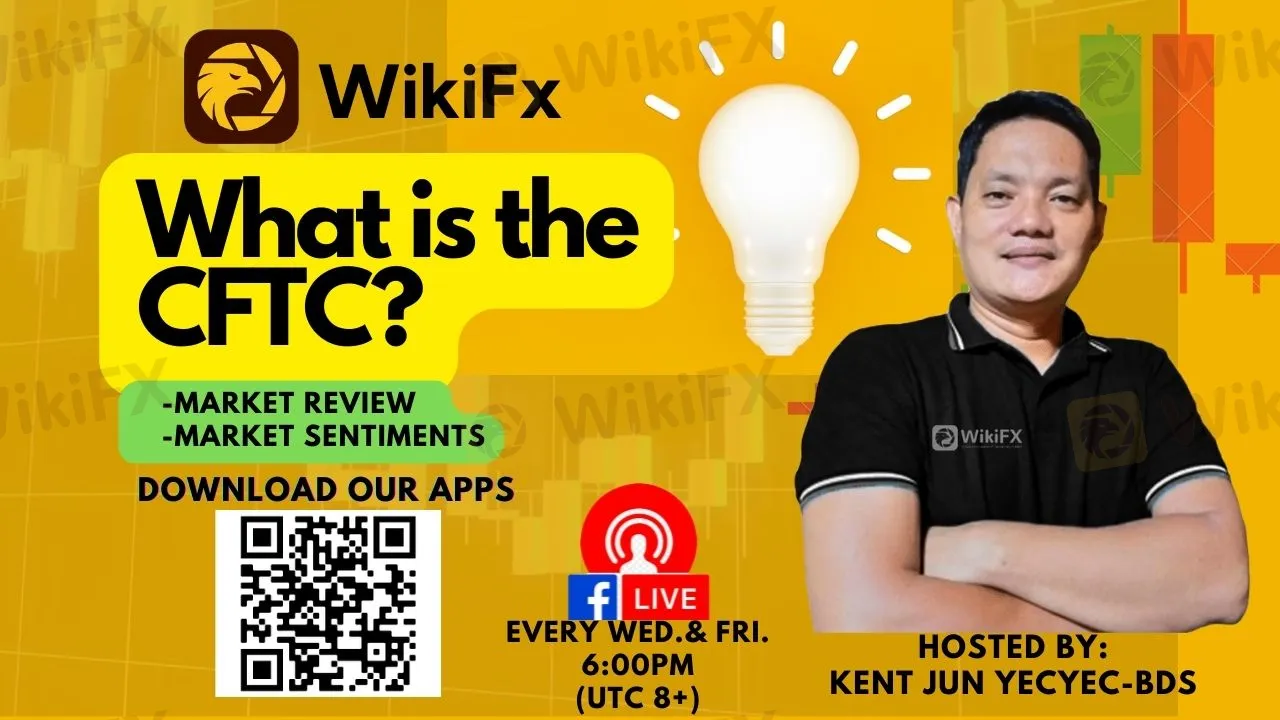简体中文
繁體中文
English
Pусский
日本語
ภาษาไทย
Tiếng Việt
Bahasa Indonesia
Español
हिन्दी
Filippiiniläinen
Français
Deutsch
Português
Türkçe
한국어
العربية
What is the CFTC?
Abstract:The CFTC and SEC are regulatory authorities in the United States. How are they dissimilar? Why is the forex market regulated by the CFTC instead of the SEC?
The purpose of the Commodity Futures Trading Commission (CFTC) is to promote the integrity, resiliency, and vitality of the United States' derivatives markets through good regulation. The Commodity Futures Trading Commission (CFTC) was established in 1974, replacing the Commodity Exchange Authority, whose jurisdiction was limited to agricultural commodities. In contrast, the CFTC is authorized to regulate futures, swaps, and options markets for all commodities. The mission of the CTFC is to safeguard investors from manipulation, unethical trading techniques, and fraud.
Let's begin with the fundamentals. The “C” in CTFC represents Commodity, whereas the “S” in SEC represents Securities. The CTFC supervises commodities, whereas the SEC regulates securities. That should be the case, correct?
Obviously, these two names have different meanings, but for the sake of clarity, let's examine their legal definitions.
In a simple sense, we can define securities as tradable financial instruments. Here is the definition of securities according to Title XV, Section 77b(a)(1) of the United States Code:

Disclaimer:
The views in this article only represent the author's personal views, and do not constitute investment advice on this platform. This platform does not guarantee the accuracy, completeness and timeliness of the information in the article, and will not be liable for any loss caused by the use of or reliance on the information in the article.
Read more

Trade FX-Limited - Scams & Lack of Withdrawals are Normal Here!
Trade FX-Limited adds to the list of forex brokers whose investors have been fed up with a lack of withdrawals, leading to scams later. Check out what customers are saying about this forex broker.

10 Signs of a Fake Forex Trading or Crypto Website
Been to a forex trading or crypto website promising guaranteed returns, displaying too good to be true testimonials and far too many impressive features? Beware, it's a SCAM! In this article, we discuss 10 signs of a fake forex trading or cryptocurrency website.

Top Considerations for Choosing INFINOX
INFINOX offers a regulated, user-friendly Forex platform with advanced tools, global access, and strong data security, making it ideal for traders of all levels.

Short or Long Term: Which to Choose for Double-Digit Returns from Gold Investments?
Everyone is asking - whether I should invest in gold for the short or long term given the recent surge? Explore this guide to know how gold has performed over the years, its outlook, and more details.
WikiFX Broker
Latest News
XTB Hack 2025: Major Security Breach Exposes Client Accounts
These are America's 10 weakest state economies most at risk in a recession
These are America's 10 strongest state economies best prepared for a recession
Federal Reserve quietly responds to Trump administration attacks over renovation
Tariff Windfall Drives Surprise $27 Billion US Budget Surplus In June
Top Wall Street analysts are upbeat about these dividend-paying stocks
Singapore's economy grows 4.3% in second quarter, beating expectations
What WikiFX Found When It Looked Into Emar Markets
MT4 vs MT5 Which Forex Trading Platform Fits Your Needs in 2025?
Stock futures slide on more Trump tariff letters, but are off worst levels of session: Live updates
Currency Calculator


